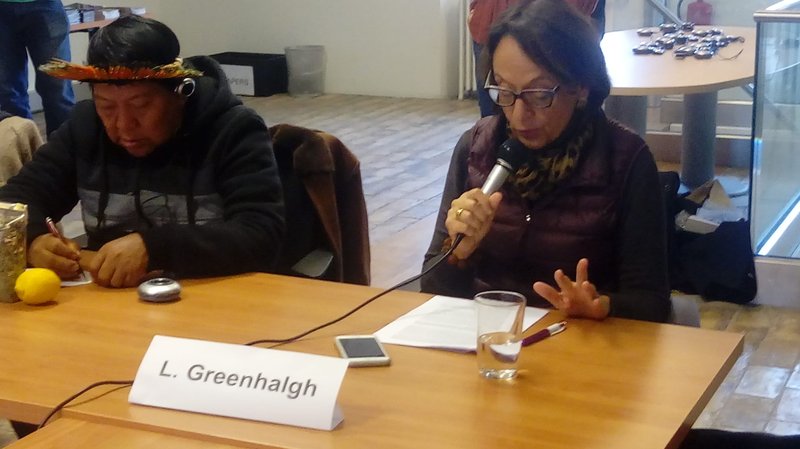At the UN, the Arns Commission denounces risks of ethnocide and genocide
3 Mar 2020, 15:15
One of the speakers at the opening plenary of the 43rd Session of the UN Human Rights Council, which took place on March 2, in Geneva, Switzerland, was the Yanomami leader, Davi Kopenawa. "I did not come here to lie, I did not come here to speak ill of Brazil. I came here to make an alert," said the 2019 Right Livelihood Award winner, drawing attention to the need to "protect isolated Indigenous people.”
On the same day, in the evening, Kopenawa gave a lecture at the University of Geneva, where he declared himself to be very concerned about the appointment of a missionary to the National Indigenous Foundation (Fundação Nacional do Índio – Funai), to protect isolated peoples: “Brazilian authorities do not know and have never walked on the borders. They only use the Internet.”
Kopenawa's visit to the UN was the result of an effort by the following organizations: the Arns Commission, the Socio-Environmental Institute (Instituto Sócio Ambiental – ISA), and Conectas Human Rights, which also promoted, on March 3, in Geneva, an independent hearing to denounce the risks involving Indigenous peoples in Brazil.
In this event, which was attended by more than 30 people, Antônio Oviedo, from the Socio-Environmental Institute (ISA), cited a recent report made by the same Institute that shows the imminence of new massacres and the risk of genocide of isolated peoples. "The conditions for new conflicts are being created," he pointed out.
Representing the Arns Commission, journalist Laura Greenhalgh referred to the frequent statements made by the Brazilian president and high-ranking officials: "It seems that the Indigenous peoples are seen by the current government as obstacles to be removed, one way or another.” She added: "The systematic attacks against Indigenous lands are a way of promoting their genocide, given the close relationship that these peoples have with their lands. The imposition of conditions on the lives of these groups is intentionally leading them to annihilation.”
During the 43rd session of the UN Human Rights Council, the Arns Commission distributed a testimony by Davi Kopenawa on the invasion of the Yanomami territory by miners and the situation of the isolated groups. In the document, he describes with emotion the threats he has received: "Things have been like this. Now the Whites don't live far from us. They don't stop coming closer. In the city of Boa Vista, they have become very numerous, they will increase without truce, and now they exhort one another. They say, 'Yes, we are going to take the precious goods of the Yanomami land. These goods are not yet real commodities, but they are precious goods, hidden in the gravel of the earth. We are going to take these riches, and also the trees of the forest, and we are going to settle in the Yanomami land! That's what the Whites say to each other and that's how they encourage themselves: 'Come to Boa Vista! I, the government of Roraima, will give you work! You won't be poor anymore!'”.